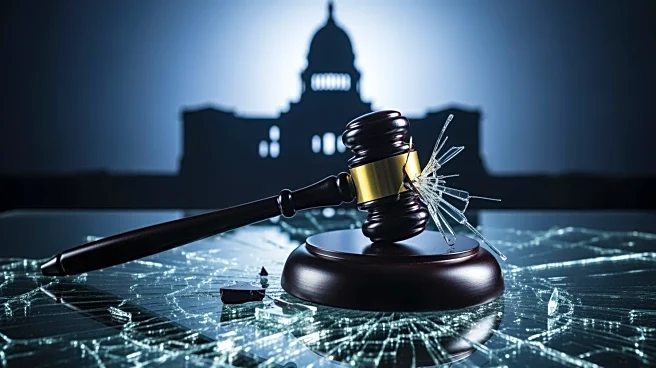What's Happening?
Ibraheem Samirah, a former Virginia state delegate, has been convicted of wire fraud related to the misuse of a Paycheck Protection Program (PPP) loan. During the early days of the COVID-19 pandemic, Samirah applied
for an $83,000 PPP loan, claiming it would be used to pay employees at his dental practice, NOVA Healthy Smiles. However, court documents revealed that Samirah did not have any employees and instead diverted the funds to his personal bank account. He created fake payroll and tax records to support his loan application and later attempted to have the loan forgiven by the Small Business Association. Samirah was sentenced to three years of probation and ordered to pay $88,000 in restitution.
Why It's Important?
This case highlights the widespread issue of fraud within the PPP loan program, which was designed to support businesses during the pandemic. The Small Business Administration has estimated that over $200 billion in potentially fraudulent loans were disbursed. Samirah's conviction underscores the challenges faced by government agencies in ensuring that relief funds are used appropriately. The misuse of taxpayer dollars by an elected official raises concerns about accountability and integrity in public service. It also reflects broader issues of financial oversight and the need for stringent measures to prevent fraud in emergency relief programs.
What's Next?
Samirah plans to focus on developing his dental practice, now relocated to Sterling and operating under the name Community First Dental. He is also involved in a wrongful termination lawsuit against a former employer, alleging discrimination based on his Muslim faith. The case may continue to unfold as Samirah navigates legal challenges and attempts to rebuild his professional career. The broader implications for the PPP program include potential reforms to enhance oversight and prevent future fraud, as well as ongoing investigations into other fraudulent claims.
Beyond the Headlines
Samirah's case is part of a larger narrative involving political figures and their interactions with federal relief programs. His conviction may influence public perception of elected officials and their ethical responsibilities. The case also touches on issues of racial and religious discrimination, as Samirah has faced allegations of antisemitism and discrimination in his political and professional life. These dimensions add complexity to the legal and social implications of his actions.










